#Cleon XIV
Text
I will never be over how heavily dawn and dusk's relationship in season 2 mirrored season 1 while being its complete opposite. like
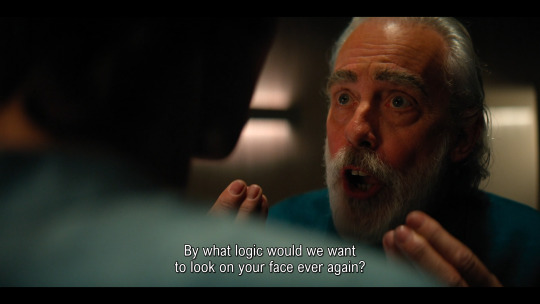









they were INSANE for this
#also - the offscreen elephant in the room of XIV being dusk when XVI was dawn#I want to believe he broke the cycle and was the sweetest grandpa ever to baby 16 :--(#foundation#foundation season 2#brother dawn#brother dusk#cleon xii#cleon xiv#cleon xvi#cleon xviii
91 notes
·
View notes
Text
there aren't enough fics on the father-son relationship (i've crafted in my head) between cleon xiii and cleon xiv
brother day used to take dawn to picnics when he was a baby and no one can take that from my mind
#im sorry im kinda in love with how much day cared for dawn#with dawn saying that he wanted to call day his father#i just-#i cant-#someone write more fics about them#or i'll be forced to do it myself#cleon xiii#brother day#cleon xiv#brother dawn
34 notes
·
View notes
Text
i’m not crying about brother dawn, you’re crying about brother dawn
7 notes
·
View notes
Text
Cleon the XIV and the No Good, Very Bad, Decantment | Big Cat Judgement Day by With Confidence
I made another thing
(Possible volume warning)
Reblogs appreciated
11 notes
·
View notes
Text
Time for another snippet - Upcoming Chapter 6 of 6 - See You How You Really Are
“Hmmm, too onerous,” Demerzel smiled wider.
Fourteenth was spectacularly, ridiculously morbid. He was the only Cleon and one of very few people she had ever met that was like that. She exaggerated the act of intense thinking, tapping her fingers against her chin and furrowing her brows. “I can envision you dying from something innocuous, like choking on wine. Or tripping on a rug.”
#foundation#foundation fanfic#somebirdortheother fanfic#Demerzel#cleon xiv#cleon xiii#cleon xiii x demerzel
11 notes
·
View notes
Text
In the aftermath of Cleon XIV's death, Brother Day and Brother Dusk have a conversation. (Spoilers for the end of Ep10)
9 notes
·
View notes
Text
young Cleon XIV has the same boyish charm as the young Anakin Skywalker and I’m not sure what to expect but I’m here for it
#I’m only halfway through season 1 I think.#but rn I love him so so much#no spoilers pls!!#my stuff#foundation series
2 notes
·
View notes
Text

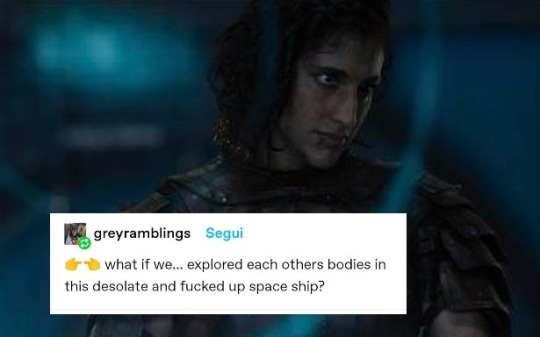
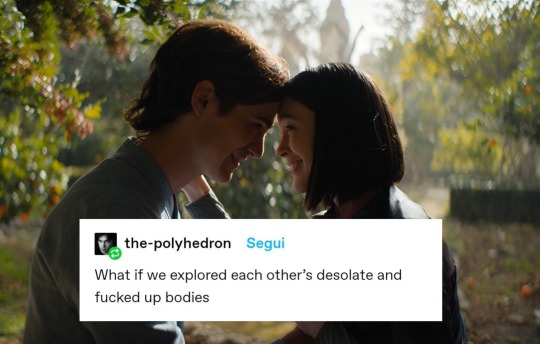

Foundation as this post
#asimov#isaac asimov#foundation#demerzel#foundation spoilers#eto demerzel#salvor hardin#phara kaean#azura odili#cleon#cleon xiv
68 notes
·
View notes
Photo
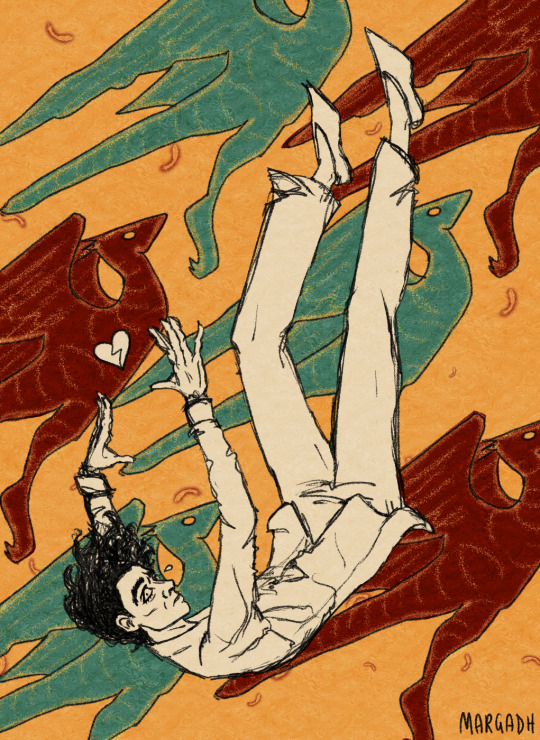
- we’ll make it so they can’t find you.
- I have the most recognisable face in the galaxy!
#foundation#apple tv foundation#brother dawn#cassian bilton#cleon xiv#my art#yes I'm king of not being able to keep a consistent signature for a week straight xx
88 notes
·
View notes
Text
Why is there not more cleoncest content. You are telling me you didn't see how obvious some of those clones wanted to fuck each other? How deeply broken and flawed they were and only finding comfort with themselves? Cleon the XIII and Cleon the XIV being in an absolutely soft relationship because they knew they were different from the start. PLEASE
#cleoncest#emperor cleon#foundation 2021#cleon the XIII#Cleon the XIV#clonecest#selfcest#brother day#brother dawn#brother dusk
10 notes
·
View notes
Text

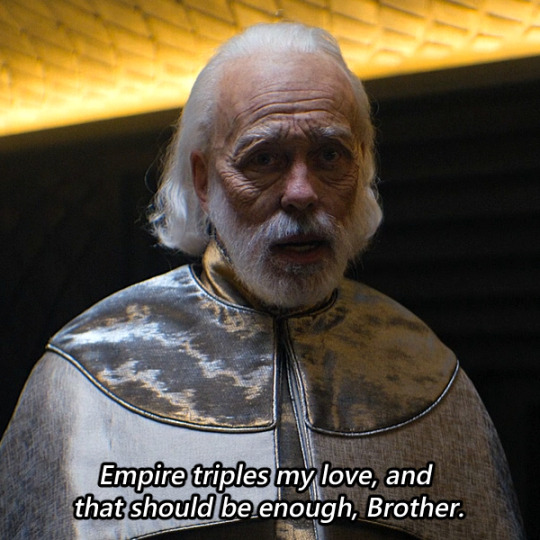
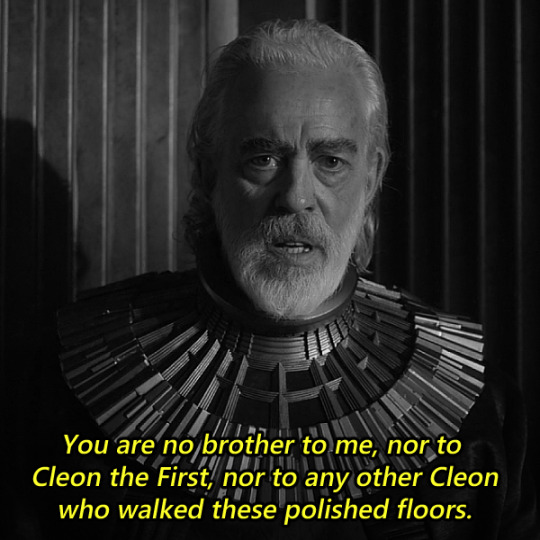

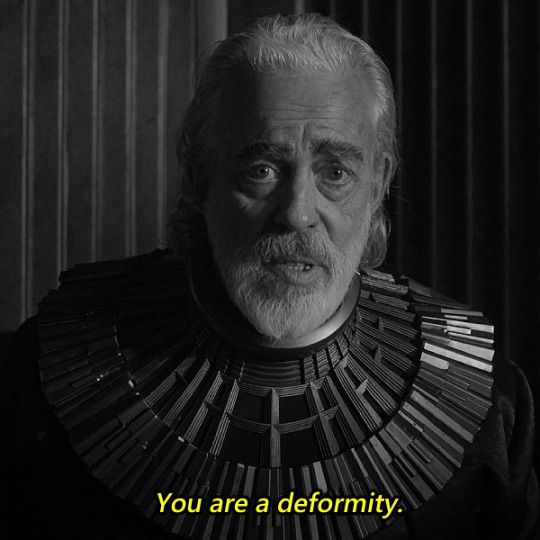
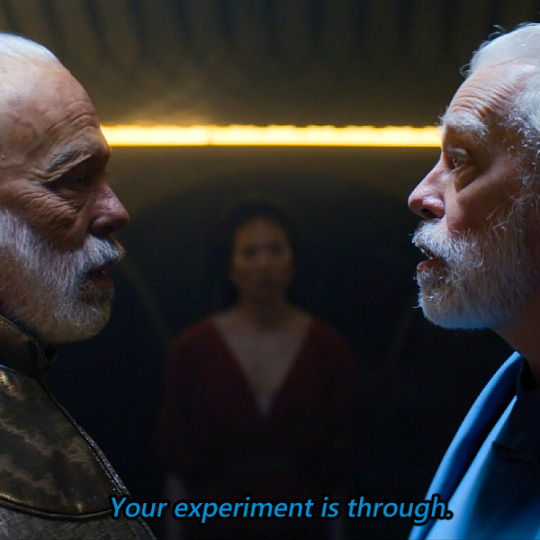
watching the clones finally disown the old bastard is something that can actually be so personal
#foundation#foundation season 2#foundation spoilers#cleon i#cleon xii#cleon xiv#cleon xvi#enjoiner rue
135 notes
·
View notes
Text
Cleon Genetic Dynasty [Foundation 1s]
Fandoms: Foundation (TV 2021)
Major Character Death
Cleon XI (Foundation TV 2021)
Cleon XII (Foundation TV 2021)
Cleon XIV (Foundation TV 2021)
Cleon XIII (Foundation TV 2021)
Cleon I (Foundation TV 2021)
Demerzel (Foundation TV 2021)
Video
Embedded Video
Fanvids
Clones
Robots
Brother Dawn, Brother Day, Brother Dusk...
(Feed generated with FetchRSS)
source https://archiveofourown.org/works/35684497
4 notes
·
View notes
Note
I owe Lewis an apology and a bouquet of roses. He did really good, and he was incredibly selfless in the end. It's a true testament to his character. He was probably terrified.
Lee Pace's moves are extremely sensual. There, I said it. But seriously, they don't have sunscreen in the Foundation Universe? I think even the way he kneeled was outrageously slutty. Perhaps it's just something he exudes in general. Perhaps it's just Lee Pace. I don't know. I just don't understand why he started the Spiral fully covered, then progressively lost his clothes, and then ended up half naked. Was it a fashion statement? A power move? Is he just stupid? Nobody knows. Not even himself, I presume.
I felt terribly sad for him, though. He didn't see anything. It must've made him feel so lonely. Somehow, I feel like whatever feelings his encounter with the old man elicited in him, this disappointing experience balanced that in the complete opposite direction. I don't know if that makes sense.
Where I'm from we have a saying. It could be translated this way: you know what you give up, but you never know what you get in return. This is exactly how I feel about this new Brother Dusk. I said I hated his predecessor. I didn't know how good I had it. New Batch is messed up. The actor managed to chanel the creepiness exhibited by Lee Pace when he was playing this Cleon (Cleon XII I believe). The mural manipulation. I knew it before I saw but it was still a gut punch. And the music sold it.
Whenever a protagonist gives away a invaluable item in exchange for a bauble much needed to evade their enemies, I'm always convinced that, although the narrative might not show it to us, the person who accepted the exchange will be killed for it. Either because it's worth stealing, or because the people hunting the protagonist will eventually find their way to the item, and kill its current possessor.
All of this to say that protagonists get people killed. And the succession of twists melted my brain. I was extremely suspicious of Azura's game from the begining, because it was too good to be true. She had an answer to everything, and a solution to all of Dawn's problems. But this whole time, I thought that perhaps, she was Dusk's pawn, and merely a test that all Cleons had to go through at some point. It was way more messed up.
I know that Day will want Dawn dispatched and replaced by a perfect copy, there is no other option for the kind of situation they're in (or I would be extremely surprised). And obviously, nobody will ever know of this whole debacle, so the new Dawn will still be known as Cleon XIV. But I wonder how they'll call him when they're only between themselves: Cleon XIV 2.0, Cleon XIV ESR, Cleon XIV RTM, or just Cleon XIV(2)?
Salvor and Hugo were playing 5D chess when the rest of them were playing checkers. Brilliant. Also Hugo is awesome. And his beard game is incredible.
Ok Hari isn't even playing chess. He's just twenty steps ahead. And he's a complete bag of balls. I can't believe I love him. He's incredibly charismatic but also such a massive ass. I'm worried, though, that much like psychohistory, he cannot really see people as individuals. He has his big plan in mind, but he seems to forget that people don't like to be meddled with, to be controlled, and lied to. His memory is good enough that he can recall the names of everyone who boarded with him for Terminus, but it doesn't mean that he cares at all. You're right, his ego is immense.
I have to give it to him though, his Second Foundation makes complete sense. Terminus is known to the Empire, it would be stupid to only count on it, and in fact, I'm a little upset at myself for not pointing it out sooner. But he admitted himself that he considers the Termini as bait, and that it's highly unlikely that they will endure. It reminds me of Ender's Game. It's very cruel. I understand that he only considers the big picture, but these people entrusted themselves to him, and his vision.
Now regarding Demerzel and Cleon the First, I was actually quite surprised. If my understanding is correct, she was already far older than him when they programmed her, right? Initially, I felt that modifying her program so she would serve the Cleonic Dynasty denoted a lack of trust in her. But after rewatching the scene, it felt like an insurance, not for the next Cleons, but for her. So they would never question her, and so she would be safe from any sort of retribution. But either way, when she talked to Cleon XII when he was at the final stage of his life, and she said that they (the Cleons) always left her, I felt incredible longing. Perhaps it's better for her that they never seem to rise to the level of Cleon the First. It would be atrocious to lose him again, wouldn't it?
Now to episode 10.
DYING over this breakdown.
Lewis: Yes, in the end he really came through. He was never the bad guy, he was just narrow-minded in his approach for what "good" meant, but he had genuine care for his people and was willing to sacrifice himself. For the record, I found those whole scenes with people physically having to wire themselves in for the jump such classic SPACE HORROR concept that I almost puked (and I mean that affectionately).
Brother Slut: Yes... Well, my hypothesis is that he was stupid about the dangers of sun exposure. I suppose... maybe he didn't know that the burning thing in the sky can burn skin, too? Who knows! He definitely doesn't! I was tremendously sad for him to - he had a bit of one step forward-two steps back as personal growth in that episode. I thought that his experience had been profound, but he was dealt a shitty card to have to continue being a shitty dude.
Brother Dusk: I am paging @brotherdusk because collectively we HAD to know your thoughts on this "upgrade". Oh boy, have you delivered. Yes, yes, this is still that same creepy, menacing, Cleon XII baby! In all his glory, but now also older, no longer the ruler he loved being, and still endlessly spiteful. Gotta love the Galactic Evil Grandpa. The move with the mural was absolutely spectacular. What a massive cunt :D
With Azura's thing, I was on Dusk's side for how he handled the situation - I am glad he was able to foresee the levels of stupidity of Dawn walking right into that trap. For the record, I have a feeling that each Dawn is uniquely ridiculous and dumb, and somehow Demerzel manages to shape up those messes into Days.
Day wanting Dawn dispatched - OH! INTERESTING PERSPECTIVE and I guess you will have to see for yourself, and I think that may tie in with your musings on his character growth or lack thereof. Also LOL at your backup clone notation. I am sure they have release notes on each version :D
Hugo - Absolute legend. Salvor - absolute legend. No notes, they are BOSSES.
Hari Seldon - yeaaaaaa he's a cock. Yeaaaaaa I love him. I also think he's an absolute red flag for the galaxy, and I doubt that his vision is actually a better alternative to Endless Cleons.
Demerzel - I believe on the show they do not allude to her being programmed in any way prior to Cleon I. It is unclear to me what the insurance policy would entail, but I certainly speculate in my writing! All I can say - it's undeniable that she *actually* cares about all these clones no matter how insufferable she may find them individually.
#fng foundation watch#foundation reaction#s1 ep 9 reaction#foundation season 1#foundation season 1 meta#somebirdortheother ask#lovebird collective#hari seldon#salvor hardin#cleon xiii#cleon xii#brother day#brother dusk#brother dawn#demerzel#lewis pirenne
24 notes
·
View notes
Text
Changing Empire
read it on the AO3 at https://ift.tt/3KhEz95
by Mencia
Dr. Elizabeth Bennet, a civil engineer, goes to the Imperial Palace with her supervisor, who has been summoned by Empire. She will propose plans to stimulate innovation in the Galaxy that will impress Cleon XIII.
Words: 1821, Chapters: 1/12, Language: English
Fandoms: Foundation (TV 2021), Pride and Prejudice - Jane Austen, Pride and Prejudice & Related Fandoms
Rating: Mature
Warnings: No Archive Warnings Apply
Categories: F/M
Characters: Elizabeth Bennet, Cleon XIII - Character, Cleon XIV, Cleon XII, Demerzel
Relationships: Elizabeth Bennet/Cleon XIII, Elizabeth Bennet & Cleon XIV
Additional Tags: Science Fiction, Romance, Asimov Foundation universe, innovation, Science, The Spiral, Happy Ending, Lee Pace - Freeform
read it on the AO3 at https://ift.tt/3KhEz95
0 notes
Text
griefandpunishment replied to your post “griefandpunishment replied to your post “To be fair, I first got...”
I'm down. Recently my obsession has been Final Fantasy XIV and sticking everyone in it and generally embracing AU hell. You know that Cleon/Strifehart is an OTP of mine, but I love them as friends as well. (Fun part of RP is that I get to explore that...some clouds are aro/ace, some are not, all are different.) not that I've been writing much of anything lately /dies
XIV is one of the ones that I know less about, admittedly. I haven’t seen as much of its plot and storyline floating around, and there aren’t as many things talking about it as, say, XV or XIII or X. (I’m currently reading a VII AU where they’re all in X-verse. It’s... interesting.)
Yeah, I know! To be honest I really love the relationship they seem to have in KH, even if for me it’s a close friendship instead of a ship thing. I’m really hoping they both come back in KH3, too, because we just don’t get to see enough of them interacting in the other games, and it’s always great when they do.
I’ve... been writing on and off. Currently I have been dipping into writing FF7 fic, mainly AUs where things end up better than canon.
4 notes
·
View notes
Text
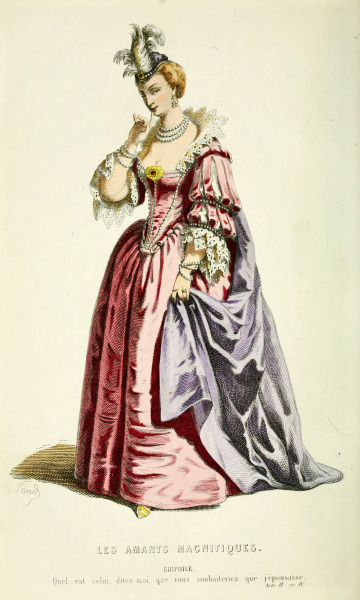
Ériphile par Edmond Geffroy (théâtre-documentation.com)
In this post, we read the comedy. However, the comedy has interludes written by Molière. Every stage effect was used to please the King and his Court. So, excluding the intermèdes (interludes) seems inappropriate.
In Les Amants magnifiques, we are in the Vale of Tempe, the location where the events of Mélicerte and La Pastorale comique take place. The location was suggested by Louis XIV and so was the subject: rival lovers. You may remember that these two plays were incomplete. Molière may have looked upon these plays as pièces de circonstances. When the obligatory period of mourning for Anne d’Autriche, Louis’ mother, ended, the Court moved to Saint-Germain-en-Laye, a royal residence. At the very center of these festivities was Isaac de Benserade‘s Ballet des Muses FR. Molière’s contribution was the ballet’s third entrée. Mélicerte was played from 2 December 1666 to 5 January 1667, the day it was replaced by La Pastorale comique. A third play, Le Sicilien, ou l’Amour peintre was staged on 13 or 14 February, at Saint-Germain. It was a late entry, the fourteenth. It would not be played for a wider audience until 10 June 1667. Molière had fallen ill.
Molière’s “Mélicerte” (4 May 2019)
Molière’s Pastorale comique (The Comic Pastoral) (10 May 2019)
Molière’s “Sicilien,” or “Love makes the Painter” (14 May 2019)
Les Amants magnifiques, The Magnificent Lovers, is described as a five-act comédie héroïque and a comédie-ballet, in prose. It was part of a grand divertissement commissioned by Louis XIV and Madame de Montespan. In fact, Louis chose the subject: rival princes. It was a pièce à machines that incorporated every stage effect. The play was meant to dazzle the audience.
Various members of the Court played roles in The Magnificent Princes‘ intermèdes: singers and dancers. They are named in La Pléiade‘s 1956 edition of Molière’s Œuvres complètes, the edition I use in combination with the Molière 21’s 2010 Pléiade edition. Louis didn’t dance and would never dance again. According to other sources, Louis XIV danced for the last time. Until Les Amants magnifiques FR, the King had commissioned Isaac de Benserade to write divertissements. However, Isaac de Benserade had displeased Madame de Monstespan. So, considerable trust was invested in Molière. Les Amants magnifiques was written by Molière to music by Jean-Baptiste Lully. The lavish play was too expensive to be performed in Paris. It premièred on 4 February 1670, at Saint-Germain-en-Laye, during Carnival season. It closed after five performances. Linked to this play is La Princesse d’Élide (1664), written for another divertissement: Les Plaisirs de l’Île enchantée, festivities that took place early during the construction of Versailles.
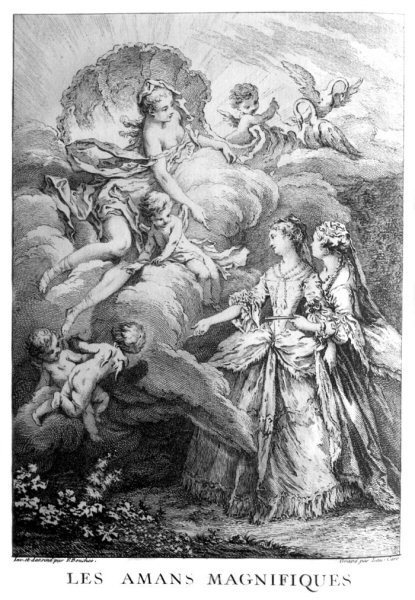
par François Boucher (dessin) et Laurent Cars (gravure), 1734 (commons.wikimedia.org)
In short, Les Amants magnifiques is:
a comédie héroïque,
a comédie à machines,
and a comédie-ballet,
in five acts and in prose with intermèdes.
Its music was composed by Jean-Baptiste Lully.
It was first performed on 4 February 1670 at Saint-Germain,
before the King and his Court.
Our dramatis personæ is:
Iphicrates & Timocles, princes in love with Eriphyle.
Sostratus, a general, also in love with Eriphyle.
Anaxarchus, an astrologer.
Cleon, his son.
Chorœbus, in the suit of Aristione.
Clitidas, a court jester, one of the attendants of Eriphyle.
Aristione, a princess, mother to Eriphyle.
Eriphyle, a princess, daughter to Aristione.
Cleonice, confidante to Eriphyle.
Ériphile par Edmond Hédouin
Ériphile par Adolphe Lalauze
Les Amants magnifiques par Edmond Hédouin (théâtre-documentation.com)
Les Amants magnifiques par Adolphe Lalauze (théâtre-documentation.com)
The Plot
La Princesse Ériphile graces the image above. Her mother, Princesse Aristione, has asked her to choose her own husband. Two princes are courting her: Iphicrate and Timoclès. They are the “amants magnifiques” (the magnificent lovers). Psyché, a tragédie-ballet, would also feature two competing lovers. Psyché could not choose between her two princes, nor can Ériphile. She says that marrying one would hurt the other. She could not love the princes. They have not merit.
ACT ONE
Sostrate tells Clitidas that he is in love
Rank: an obstacle
Sostrate is asked to find out which prince she has chosen
However, in Act One, after much prying, Sostrate, a general in the army, tells Clitidas, a courtier, that he loves Ériphile, but that his rank and fortune do not allow him to reveal his feelings and marry her. How can he, a general, compete with two princes. As for Sostrate he will die without revealing his feelings:
Mourir sans déclarer ma passion.
Sostrates à Clitidas (I. i, p. 4)
[To die without telling my love.]
Sostrates to Clitidas (I. 1)
However, in Scene Two, Sostrate is asked by Aristione, Ériphile’s mother to choose one of the princes on her behalf, which is very ironical. He would like to refuse, but must serve Aristione:
Puisque vous le voulez, Madame, il vous faut obéir, mais je vous jure que dans toute votre cour vous ne pouviez choisir personne qui ne fût en état de s’acquitter beaucoup mieux que moi d’une telle commission.
Sostrate à Aristione (I. ii, p. 7)
[Since it is your wish, Madam, I must obey; but I assure you that there is not one person in the whole of your court who would be less qualified for such a commission than myself.]
Sostrate à Aristione (I. 2)
Ériphile missed a divertissement planned by the one of the rival princes.
Madame, elle s’est écartée, et je lui ai présenté une main qu’elle a refusé d’accepter.
Timoclès à Aristione (l. ii, p. 6)
She is gone away, Madam. I offered her my arm, which she refused to accept.
Timoclès to Aristione (I. 2)
Later, Cléonice, Ériphile’s confidante says:
On trouvera étrange, Madame, que vous vous soyez ainsi écartée de tout le monde
Cléonice à Ériphile (I. v, p. 9)
[It will be thought strange, Madam, that you should keep away from everybody]
Cléonice to Ériphile (I. 6)
Sostrate also missed the entertainment. Why did Ériphile and Sostrate stay away?
Pour moi, Madame, connaissant son indifférence et le peu de cas qu’elle fait des devoirs qu’on lui rend, je n’ai voulu perdre auprès d’elle, ni plaintes, ni soupirs, ni larmes.
Sostrate à Aristione (I. ii, p. 6)
[For my part, Madam, knowing her indifference and the little value she sets upon the homage that is paid to her, I did not mean to waste either sighs or tears upon her.]
Sostrate to Aristione (I. 2)
So, from the beginning of the play, Ériphile shows little interest in her suitors. An interméde separate Act One and Act Two. It is a gift from Cléonice and features three Pantomines.
ACT TWO
Sostrate has placed Ériphile above everything.
marivaudage prefigured
the confession: no one and nothing is above Ériphile
In Act Two, Scene Two, Clitidas tells Ériphile that Sostrate has placed her above everything else and loves her:
Il m’a demandé si vous aviez témoigné grande joie au magnifique régale que l’on vous a donné; m’a parlé de votre personne avec des transports les plus grands du monde, vous a mise au-dessus du Ciel, et vous a donné toutes les louanges qu’on peut donner à la princesse la plus accomplie de la terre, entremêlant tout cela de plusieurs soupirs qui disaient plus qu’il ne voulait. Enfin, à force de le tourner de tous côtés, et de le presser sur la cause de cette profonde mélancolie, dont toute la cour s’aperçoit, il a été contraint de m’avouer qu’il était amoureux.
Clitidas à Eriphile (II. ii, p. 11)
[He asked me if you were very pleased with the royal entertainments that are offered to you. He spoke of your person with the greatest transports of delight, extolled you to the sky, and gave you all the praises that could be given to the most accomplished princess in the world, and with all this uttering many sighs which told me more than he thought. At last, by dint of questioning him in all kinds of ways, and pressing him to tell me the cause of his melancholy, which is noticed by everyone at court, he was forced to acknowledge that he is in love.]
Clitidas to Ériphile (II. 3)
Ériphile is miffed. This is marivaudage, a form of galanterie found in the works of Pierre de Marivaux. It governs the action of Marivaux’s Le Jeu de l’amour et du hasard. In fact, Ériphile is not miffed. Clitidas tricks her by changing his statement. Sostrate is in love with Arsinoé not Ériphile. Clitidas realizes that Ériphile is not pleased. He has, therefore, elicited the truth by provoking jealousy.
Non, non, Madame, je vois que la chose ne vous plaît pas. Votre colère m’a obligé à prendre ce détour, et pour vous dire la vérité, c’est vous qu’il aime éperdument.
Licidas à Ériphile (II. ii, p. 11)
[No, no, Madam; I see that this offends you. Your anger forced me to make use of this subterfuge; and, to tell you the truth, it is you he loves to distraction.]
Licidas to Ériphile (II. 3)
In Act Two, Scene Three, Sostrate does as he has been told. He asks Ériphile which of the two princes she prefers.
Whom would Sostrate chose between her rival princes? Only Gods would qualify.
Si l’on s’en rapporte à mes yeux, il n’y aura personne qui soit digne de cet honneur. Tous les princes du monde seront trop peu de chose pour aspirer à vous; les Dieux seuls y pourront prétendre, et vous ne souffrirez des hommes que l’encens, et les sacrifices.
Sostrate à Ériphile (II. iii, p. 13)
[If I were to be judge, I should find no one worthy of that honour. All the princes of the world would be too mean to aspire to you; the gods alone can pretend to you, and you would have from men but incense and sacrifice.]
Sostrate to Ériphile (II. 4)
In short, it is for Ériphile to choose between the rival princes. As for Sostrate, although he loves Ériphile, he remains a mere general.
Acts Two and Three are separated by a rather long intermède that includes a lovely scene of dépit amoureux, spite between lovers, a pastoral shepherds and shepherdesses, satyrs, dryads, fauns, nymphs, etc. It will be discussed separately.
ACT THREE
Aristione chooses Sostrate to know which of the two princes she prefers.
J’estime tant Sostrate, que soit que vous vouliez vous servir de lui pour expliquer vos sentiments, ou soit que vous vous en remettiez absolument à sa conduite, je fais, dis-je, tant d’estime de sa vertu et de son jugement, que je consens de tout mon cœur à la proposition que vous me faites.
Aristione à tous (III. i, p. 24)
[I have such a high regard for Sostratus that, whether you mean to employ him to explain your feelings or to leave him entirely to decide for you, I consent heartily to this proposition.]
Aristione to all (III. 1)
Sostrate wishes to refuse, but he can’t. This request comes from a princess:
Par quelle raison donc, refusez-vous d’accepter le pouvoir qu’on vous donne, et de vous acquérir l’amitié d’un prince qui vous devrait tout son bonheur?
Timoclès à Sostrate (III. i, p. 24)
[For what reason could you have had, Sostratus, for refusing it?]
Timoclès to Sostrate (III. 4)
Par la raison que je ne suis pas en état d’accorder à ce prince ce qu’il souhaiterait de moi.
Sostrate à Timoclès (III. i, p. 24)
[The fear of not acquitting myself well.]
Sostrate to Timoclès (III. 4)
Sostrate recoils and Aristione. It is then for an astrologist, Anaxarque, to consult the stars. This is a fourberie, a trick.
ACT FOUR
In Act Four, Scene One, Aristione would like her daughter to tell all. Ériphile cannot. The man she loves is of a rank her mother would not accept.
Parlez à cœur ouvert, ma fille, ce que j’ai fait pour vous mérite bien que vous usiez avec moi de franchise. Tourner vers vous toutes mes pensées, vous préférer à toutes choses, et fermer l’oreille en l’état où je suis, à toutes les propositions que cent princesses en ma place écouteraient avec bienséance, tout cela vous doit assez persuader que je suis une bonne mère, et que je ne suis pas pour recevoir avec sévérité les ouvertures que vous pourriez me faire de votre cœur.
Aristione to Ériphile (IV. i, p. 28)
[Speak openly, daughter; what I have done for you well deserves that you should be frank and open with me. To make you the sole object of all my thoughts, to prefer you above all things, to shut my ears, in the position I am in, to all the propositions that a hundred princesses might decently listen to in my place—all that ought to tell you that I am a kind mother, and that I am not likely to receive with severity the confidences your heart may have to make.]
Aristione to Ériphile (IV. 1)
Si j’avais si mal suivi votre exemple, que de m’être laissée aller à quelques sentiments d’inclination que j’eusse raison de cacher, j’aurais, Madame, assez de pouvoir sur moi-même pour imposer silence à cette passion, et me mettre en état de ne rien faire voir qui fût indigne de votre sang.
Ériphile to Aristione (IV. i, p. 28)
[If I had so badly followed your example as to have allowed an inclination I had reason to conceal to enter my soul, I should have power enough over myself to impose silence on such a love, and to do nothing unworthy of your name.]
Ériphile to Aristione (IV. 1)
In Act Four, Scene Two, a false Venus arrives in her chariot and says that Aristione should consider giving her daughter to the person who saves her life.
Princesse, dans tes soins brille un zèle exemplaire,/ Qui par les Immortels doit être couronné,/ Et pour te voir un gendre, illustre et fortuné,/ Leur main te veut marquer le choix que tu dois faire;/ Ils t’annoncent tous par ma voix,/ La gloire et les grandeurs, que, par ce digne choix,/ Ils feront pour jamais entrer dans ta famille,/ De tes difficultés termine donc le cours;/ Et pense à donner ta fille/ À qui sauvera tes jours./
Vénus à Aristione (IV. ii, p. 28-29)
[Princess, in you shines a glorious example, which the immortals mean to recompense; and that you may have a son-in-law both great and happy, they will guide you in the choice you should make. They announce by my voice the great and glorious fame which will come to your house by this choice. Therefore, put an end to your perplexities, and give your daughter to him who shall save your life.]
Vénus to Aristione (IV. 2)
In Act Four, Scene Three, we learn that Venus is a false Venus. Cléon and his father Anaxarque are arranging for men to capture Aristione. Iphicrate will save her.
Va-t’en tenir la main au reste de l’ouvrage, préparer nos six hommes à se bien cacher dans leur barque derrière le rocher; à posément attendre le temps que la princesse Aristione vient tous les soirs se promener seule sur le rivage, à se jeter bien à propos sur elle, ainsi que des corsaires, et donner lieu au prince Iphicrate de lui apporter ce secours, qui sur les paroles du Ciel doit mettre entre ses mains la princesse Ériphile.
Anaxarque à Cléon (IV. iii, p. 29)
[Be it your part to go and get our six men to hide themselves carefully in their boat behind the rock, and make them wait quietly for the time when the princess comes alone in the evening for her usual walk. Then they must suddenly attack her like pirates, in order to give the opportunity to Prince Iphicrates to rush to her rescue, and lend her the help which is to put Eriphyle in his hands according to the words of Venus.]
Anaxarque to Cléon (IV. iv)
ACT FIVE
In Act Five, Scene One, we are told that Aristione was attacked by a boar, but was saved by Sostrate. Sostrate being a hero, he may marry Ériphile. Men were to attack Aristione, not a boar.
Anaxarque misused both princes. But Sostrate saved Aristione. She forgives and all go to the Jeux Pythiens.
Je pardonne toutes ces menaces, aux chagrins d’un amour qui se croit offensé, et nous n’en verrons pas avec moins de tranquillité la fête des jeux Pythiens. Allons-y de ce pas, et couronnons par ce pompeux spectacle cette merveilleuse journée.
Aristione aux princes (V. iv, p. 34)
[I forgive all these threats for the sake of the sorrow of a love which thinks itself insulted; and we will none the less go and see the Pythian Games in all peace. Let us go at once, and let us crown by the glorious spectacle this wonderful day.]
Aristione to the princes (V. 4)
Costumes for Les Amants magnifiques, Calvin University
Conclusion
The above is incomplete. In Les Amants magnifiques, the plot is embedded in mostly pastoral and mythological interludes. Louis XIV is Apollon. Louis chose the subject of his Carnival season divertissement: rival princes. So, we are in the Vale of Tempe, an idyllic location, but a princess who is “free” to choose her husband is not “free.” She must choose one of the two princes which would now be subjection to the gods. Contrary to her mother’s wishes, Ériphile would not marry the man she loves and a man of merit. Sostrate, a man of merit, does not qualify as a suitor to a princess. The princes regale Ériphile with delightful entertainment, but she and Sostrate do not always attend. Sostrate cannot give as a husband to Ériphile one of two scheming princes. So the matter goes to an astrologer. Her fate is no longer in Ériphile’s own hands.
Hélas! quelle est ma destinée, et qu’ai-je fait aux Dieux pour mériter les soins
qu’ils veulent prendre de moi?
Ériphile à Cléonice et Sostrate (IV. iv, p. 30)
[Alas! how hard is my destiny! What have I done to the gods that they should interest themselves in what happens to me?]
Ériphile to Cléonice and Sostrate (IV. 5)
Obedience to parents is a matter Molière has raised in plays such as Mélicerte. Myrtil will not let a father prevent his marrying a woman other than Mélicerte.
Anaxarque, an “astrologer,” is making plans to trap Aristione and give her daughter to Iphicrate, which would be what the gods decide. However, Ataxarque’s plan misfires. Aristione is attacked by a boar and Venus, albeit a false Venus, has decreed that Ériphile is to wed her mother’s saviour is Sostrate, The gods have spoken.
So, once, comedy, or destiny, is complicit with Ériphile and Sostrate, the young lovers of comedy. It’s an all’s well that ends well, but a complex tout est bien qui finit bien. After its Saint-Germain-en-Laye performances, Les Amants magnifiques was not performed, at least, not in Molière’s lifetime.
RELATED ARTICLES
Molière’s “Mélicerte”
Sources and Resources
The Magnificent Lovers is Gutenberg’s [EBook #7067]
Les Amants magnifiques is a toutmoliere.net publication
—ooo—
Love to everyone 💕
I thought I had fixed my computer. I had, temporarily. It seems I have to buy a new computer. This one never worked very well.
Entrée d’Apollon — Jean-Baptiste Lully
(Personne n’est Dieu sur cette terre. No one is God on this earth.)
youtube
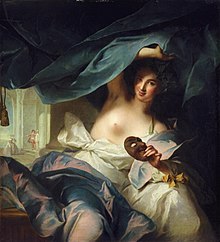
Muse of comedy and idyllic poetry, Jean-Marc Nattier (Wikipedia)
© Micheline Walker
30 September 2019
WordPress
Molière’s “Les Amants magnifiques” In this post, we read the comedy. However, the comedy has interludes written by Molière. Every stage effect was used to please the King and his Court.
#Carnival Season 1670#Comédie-Ballet#Comédies à machines#Divertissement#Les Amants magnifiques#Lully#Madame de Montespan#Molière
0 notes